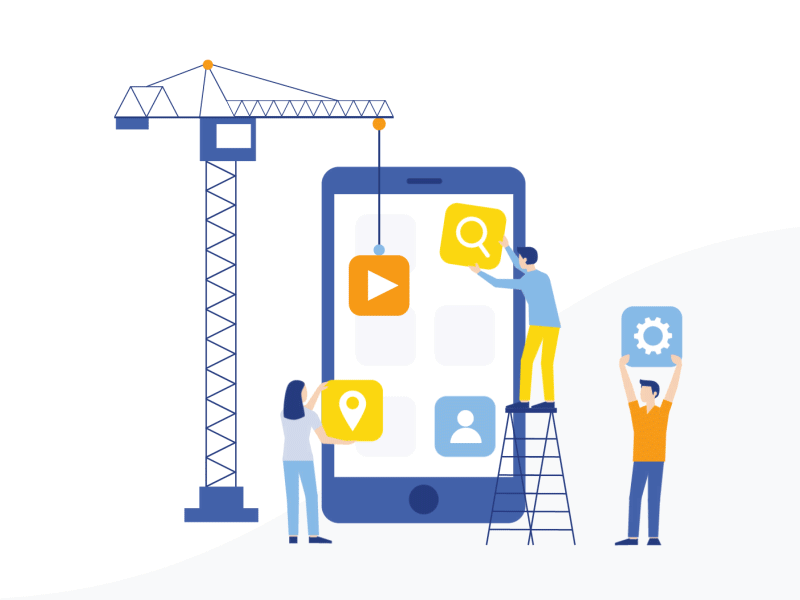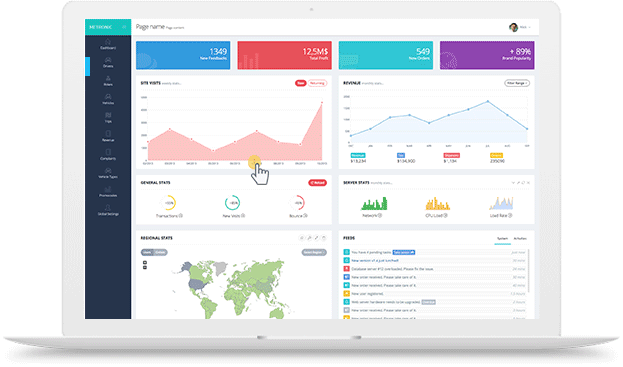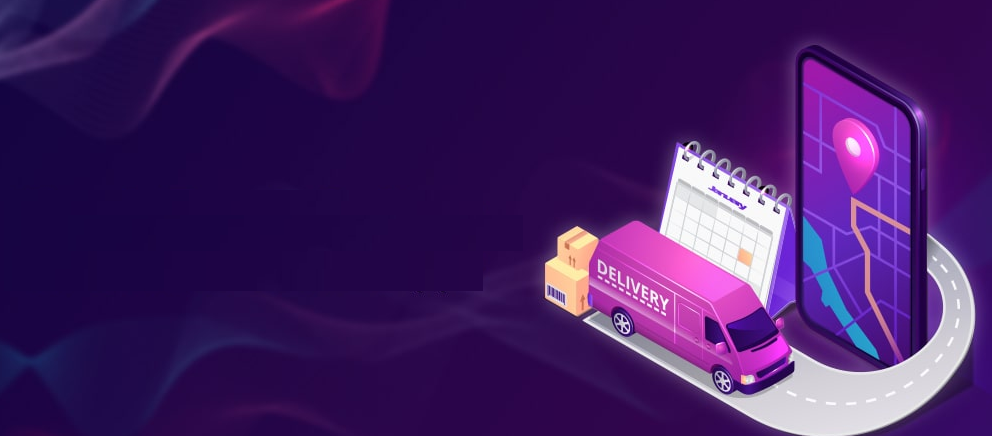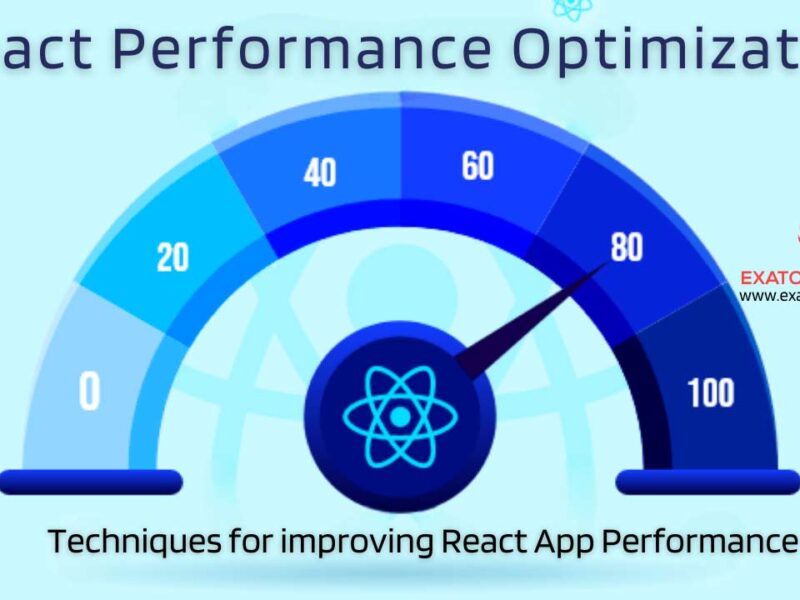Logistics is not an easy business to run. No wonder people running the business are becoming tech savvy to manage their day-to-day activities ad maintain decent profit margins. Logistics Mobile App Development companies are much aware of the situation and developing feature-rich apps that handle the most problematic areas of business. Have you ever experienced a situation where some of your truckers drive empty, your transport brokers spend too much time verifying the load board, and your driver’s truck breaks down halfway to a warehouse? It seems like a headache for any owner of a logistics service provider. Because the logistics industry is so divided into many divisions, including delivery management, fleet management, and warehouse management, such circumstances do arise. Additionally, empty miles caused by a lack of awareness across logistical departments cost money.
You must manage warehouses, guarantee maximum truckloads, track driver positions, and provide the utmost transparency across all departments in order to make your logistics management operate effectively without losing money. Development of a logistics mobile app, which makes the work across all departments visible and expected, provides the solution.
Key reasons for developing a mobile app for a logistics company
For the following advantages, logistics companies must integrate mobile application strategy into their workflow:
Eliminates paperwork
Mobile logistics apps reduce unnecessary paper order forms and service orders by providing fast access to a company’s database with freight-related paperwork.
Reduces delivery time and costs
Delivery of products can be planned, fuel costs can be expected, and empty miles can be reduced with the help of Logistics mobile app development solutions.
Optimizes dispatches and routes
With developed databases and barcode scanning capabilities, Logistics mobile App management solutions boost freight dispatching, and the delivery schedule tool lets you determine the optimum route in advance.
Provides control over vehicle tracking
An integrated GPS tracking feature to a driver’s logistics app will assist you with more coordinated shipping and properly estimate the time the vehicle will be dispatched.
The bottom line is that you can use mobile technology to automate activities, monitor sent goods in real-time, and provide visibility across all departments, so reducing empty miles and boosting profit.
Logistics Mobile App Development: what is it?

An app for logistics is a method for managing and transporting resources, including people, stock, equipment, items, and materials. Despite the fact that supply chain management and logistics management are often used in concert, they reflect different phases. While the term “supply chain” refers to a vast network of firms that collaborate, “logistics procedures” refers to the movement of items within a single company.
The development of such an application is the goal of the logistics mobile app development process. The process of developing a transport and logistics app typically entails the heavy implementation of custom software, which calls for a large team and a lot of work. Although needing a large investment, logistics mobile app development is very effective.
Logistic Mobile App Development step-by-step

Customers frequently ask us for an estimate of the cost of developing a logistics app without providing any information about the app’s nature, key features, or components, which makes the estimate useless. Thus, you must choose the type of app before contacting mobile developers. In order to communicate effectively with your development team, you should also be familiar with the stages of development.
We compiled the key steps of the logistics app development process to offer you an understanding of the process.
Select the Type of a Logistics Mobile App
Since logistics involves many different departments, the apps’ purposes, target audiences, and feature sets all differ. You must choose which type of app you will create at this point from the options listed below:
Fleet Management Mobile Apps
If your fleet is much too large, you must keep track of each vehicle’s information and perform offers quality. You can manage and store all the data about your trucks with the use of a fleet management app. You may manage vehicle maintenance records, service charges, fuel consumption trends, and other essential metrics with such transport logistics software to have a thorough understanding of your total cost of ownership. A driver’s app lets users update vehicle information, and an admin web app lets you assign roles to users, track fleet statistics, send out reminders for planned maintenance, and do other things.
Logistics On-Demand Mobile Apps
Vehicles do not usually travel fully loaded, therefore if your drivers’ trucks have a spare room, they may experience greater anxiety when making deliveries. Consider developing a mobile app for shipping on-demand if you want to boost the revenue of your logistics business.
Demand-driven delivery Applications for logistics connect shippers who need their merchandise transported with drivers of company-owned vehicles. As a result, the software is made up of a shipper app, a carrier app, and an admin panel. Let’s now investigate how these apps function.
Shippers publish a freight request with the following information: destination, origin, load, weight, and cost.
The platform alerts the closest driver, who accepts the package order and is available for rapid pickup.
Once the driver has picked up the cargo, shippers can use the vehicle’s built-in GPS to follow its whereabouts and get real-time updates and alerts on the delivery status.
The platform notifies the shipper of successful delivery after the driver delivers the cargo and immediately generates an invoice for payment.
Warehouse Mobile Apps

If your logistics mobile app development company owns a warehouse, you must make sure that all shipments will arrive at their planned destination on time. It is nearly hard to simultaneously track, manage, and update the status of several deliveries in real time. Consider developing barcode scanning software to automate the operation of your warehouse. These applications are loaded with third-party APIs that enable them to read different types of barcodes and interface with your warehouse database to update data in real-time. Additionally, barcode scanning apps cut costs associated with barcode scanners, lower human error rates, and boost warehouse staff productivity through bulk barcode scanning. Let’s take a closer look at the Logistics Plus Mobile Warehousing & Transportation App to learn more about the list of crucial warehouse management features.
Quote from logistic mobile app developers
Your objective at this point is to take into account both technical know-how and team and client communication. Why does it matter, though? Despite the fact that there are millions of talented coders, the success of the project rests heavily on the team’s ability to communicate effectively.
Sign NDA and explain your business idea
Following the completion of your request, a sales manager will arrange a call to further discuss the project. Those who are not yet your technology partners should not be given access to all the information about your logistic app. A sales manager will send you an NDA as a result if they respect your business proposal (Non-disclosure agreement). But before the first call, request that an NDA be signed if you have a tight schedule. Inform the sales manager about the logistics app you intend to create, along with its features and target market. Business analysts will use this data to make an educated guess as to your app’s costs after receiving it from the sales manager.
Receive a rough app estimate
Because there are several technical needs and specifics that need to be clarified, a rough cost estimate for the app is not the final cost of your project. Avoid firms that promise to create a thorough logistics app at absurdly low prices.
Choose the best estimate after comparing timeframes, technologies, team sizes, and hourly rates from mobile app developers.
Launch the discovery (inception) phase
It takes one to three months to complete the discovery or inception phase. Your development team will ask questions. About the app’s business logic, features, end users, and how they interact to develop a project specification. Project goals – all potential user interactions (user stories). What the app will do in each scenario, the list of technologies, and architecture. All these are described in a project specification, also known as technical documentation.
The prototype of an app is another product of the discovery phase. The prototype is a collection of interactive screens that shows the primary app’s design components. You can test our app prototype at the provided link.
Build and launch your logistic app’s MVP
The team will first construct an MVP for the feature-rich app (minimum variable product). The MVP is the version, with the functionality of the software that are absolutely necessary to demonstrate your business concept. The dev team will carry out the following to create an MVP:
Create an app MVP development plan
The main reason the app’s functionality uses the project definition and develops an MVP roadmap. All MVP user stories and the iterations for implementing them are listed in the project roadmap.
Start the development phase
The team begins putting user stories into practice in accordance with the development strategy. The team will conduct a demonstration each month to show you a finished component of the App. They will also send you a report at the conclusion of each iteration.
Release the app’s MVP on marketplaces
The development team runs the last demo after finishing the MVP before publishing it on Apple Store and Google Play. You have complete access to your app’s code, database, and other project-related materials at this point.
Essential Features For Logistics Mobile App
Being unique is the only effective strategy for success. Despite having distinctive and customized features, your software still needs some fundamentals, which we’ll go over in a moment. So, the key features for logistics mobile app development are:
1. Driver and vehicle tracking
In transport and logistics apps tracking the delivery status of products online is very helpful. This enables you to assess the drivers’ performance, identify better routes, and create a workflow that is more time-effective.
2. Pre-planned routes
This feature might change businesses like Uber and be incredibly useful in terms of time efficiency. In essence, your driver can see the best path for his destination the moment he begins his ride. It improves workflow for you as a business owner by making it safer, quicker, and sometimes even more affordable.
3. Multilingual app
Nearly 70% of users prefer applications in their native language, as per Telecom. It is a crucial feature for any application. The bilingual feature is essential for the creation of logistics mobile apps that will operate in several nations.
Start your logistics app development!
You should pick the correct collaborators if you want to design a quality logistics mobile app development. Get in touch with us for such projects. Our team has hands-on experience in developing similar projects successfully.



